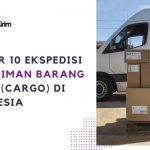Philippines selects blockchain technology for wholesale CBDC

Today the Bangko Sentral ng Pilipinas (BSP) announced it will use the Hyperledger Fabric blockchain for its first wholesale central bank digital currency (wholesale CBDC) trials, Project Agila. The central bank said it made the selection for the Philippines CBDC with input from the International Monetary Fund (IMF), the BIS Innovation Hub and other financial institutions.
Most wholesale CBDCs use DLT because banks already have central bank accounts. Blockchain or DLT provides additional programmability functionality. And it enables the CBDC to be used as an on-chain settlement asset for other blockchain assets, such as tokenized securities.
The central bank particularly highlighted the 24/7 availability of a DLT system, enabling interbank transactions outside of the business hours of the conventional payment systems.
A scoring system was used for the technology assessment including criteria such as “access, security, 24/7 availability, interoperability and programmability.”
“By the end of Project Agila, the pilot participants are expected to have a clearer understanding of CBDC technology and assess the capability of wholesale CBDCs to foster advancements in the large-value payment system. The results of the assessment are seen to guide the BSP and the industry on a possible launch of wholesale CBDCs in the Philippines,” said BSP Governor Eli Remolona Jr.
One of the other contenders was likely Hyperledger Iroha, the technology that underpins Cambodia’s Project Bakong. Its lead developer Soramitsu did some work with the BSP previously.
The Philippines has previously stated it is unlikely to launch a retail Philippines CBDC as most consumer payments are digital and financial inclusion reforms have already been made.
Cross border CBDC?
A recent IMF report highlighted the potential for the Philippines to use a CBDC for cross border payments. At one point the Philippines expressed an interest in joining Project Dunbar, the Singapore multi-CBDC project. However, we believe that the experimental project is now complete. The other major Asian cross border CBDC initiative, the MBridge Project, is moving forward. In addition to the BIS, it involves the central banks of Thailand, Hong Kong, China and the UAE, with numerous other countries observing.
Meanwhile, the local banks involved in the Philippines’ Project Agila are BDO Unibank, China Banking Corp., Land Bank of the Philippines, Rizal Commercial Banking Corporation, Union Bank of the Philippines and Maya Philippines. Observing financial institutions for subsequent stages are Citibank N. A. Manila, China Bank Savings, Wealth Development Bank Corporation, and SeaBank Philippines.
Source : www.ledgerinsights.com



